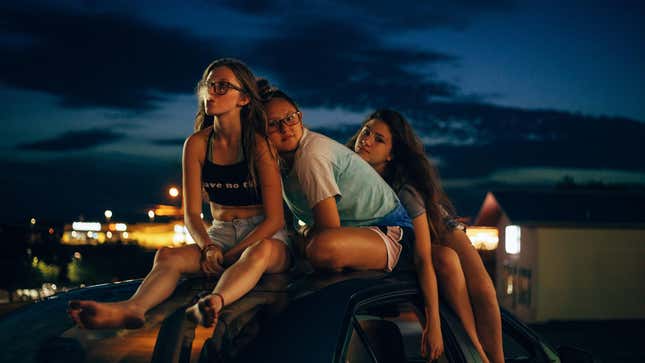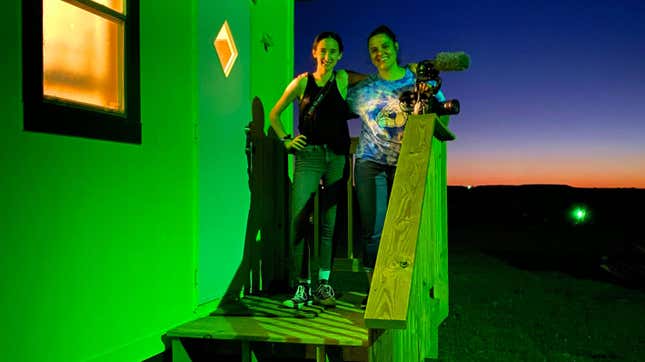Cusp Is a Shockingly Intimate Look at Teenagers Navigating Sexual Violence
We talked to the filmmakers behind the Showtime documentary, which follows three girls as they come of age under the ever-present specter of sexual assault.
EntertainmentMovies

“I never wanted to lose my virginity, but it just happened,” says one of the teenaged subjects of the new documentary Cusp. “The whole time I was like, ‘Fuck, what am I doing? Okay, we’re going to say, ‘No.’ One, two, three—.’” She cuts herself off, making a noise that sounds as though a word has made its way out of her throat only to be caught against closed lips. “I just couldn’t say no,” she concludes. “I don’t really know why. I just was so scared to say no.”
The film, which is now streaming on Showtime, offers a verité-style examination of one summer in the lives of Aaloni, Brittney, and Autumn, 15- and 16-year-old friends growing up in an unnamed Texas town. It’s at once a languorous and harrowing portrait of teenage life, with trips to beaches and lakes, backyard parties, fast food runs, and tallboys against a backdrop of lushly-filmed sunsets. The three girls at the center of the documentary contend with familial struggles, navigating relationships with parents whose own lives have been shaped by substance use and PTSD. Then there are the boys they mix with—young men on the other side of 18, some of whom carry and deploy firearms with casual ease.
In conversations with the filmmakers, Parker Hill and Isabel Bethencourt, the girls return again and again to the topic of sexual assault, sharing accounts of violence endured in earlier childhood, and efforts to negotiate the sexual power imbalances between themselves and the young men they date. One rape within their friend group is discussed with near nonchalance. “That’s funny, because whenever he came over to our house that one time and spent the night, he tried doing shit with me,” says Aaloni of the accused rapist. “But then when I told him my age, he was like, ‘Oh wait, age doesn’t matter, it’s just a number.’”
“Dang, he really out here raping kids,” she finishes, and the girls move on to discussing an upcoming party. Assault is treated as a grim fact of life, something to be avoided, but not something truly escapable.
But the documentary isn’t uniformly dark. It’s also filled with all the tender intimacies of girlhood, as the teens attempt to brush the snags out of each other’s hair and loll around on each other’s beds, often soundtracked to the music of the late Lil Peep, one of their favorite artists. In one memorable scene, Aaloni gives Autumn a nipple piercing, as friends surrounding them gasp and giggle.
“I feel like I just made a mistake,” Autumn laughs in the aftermath, holding a beer can to her chest to soothe the wound. “But it’s fine, I make many of those.”
I spoke to Hill and Bethencourt about the making of Cusp, and they explained that they met the girls while on a road trip. During a late night gas stop, they encountered the kids, who pulled up in a pickup, music blaring. They asked to photograph them, and the teens invited the pair to a party.
Later, after returning home to New York, the filmmakers contacted the youths and proposed making a documentary about them. Upon talking to everyone’s parents, the duo began filming.
Our interview has been condensed and edited for clarity.
-

-

-

-

-

-

-

-

-

-

-

-

-

-

-

-

-

-

-

-

-

-

-

-

-

-

-

-

-

-

-

-

-

-

-

-

-

-

-

-









































